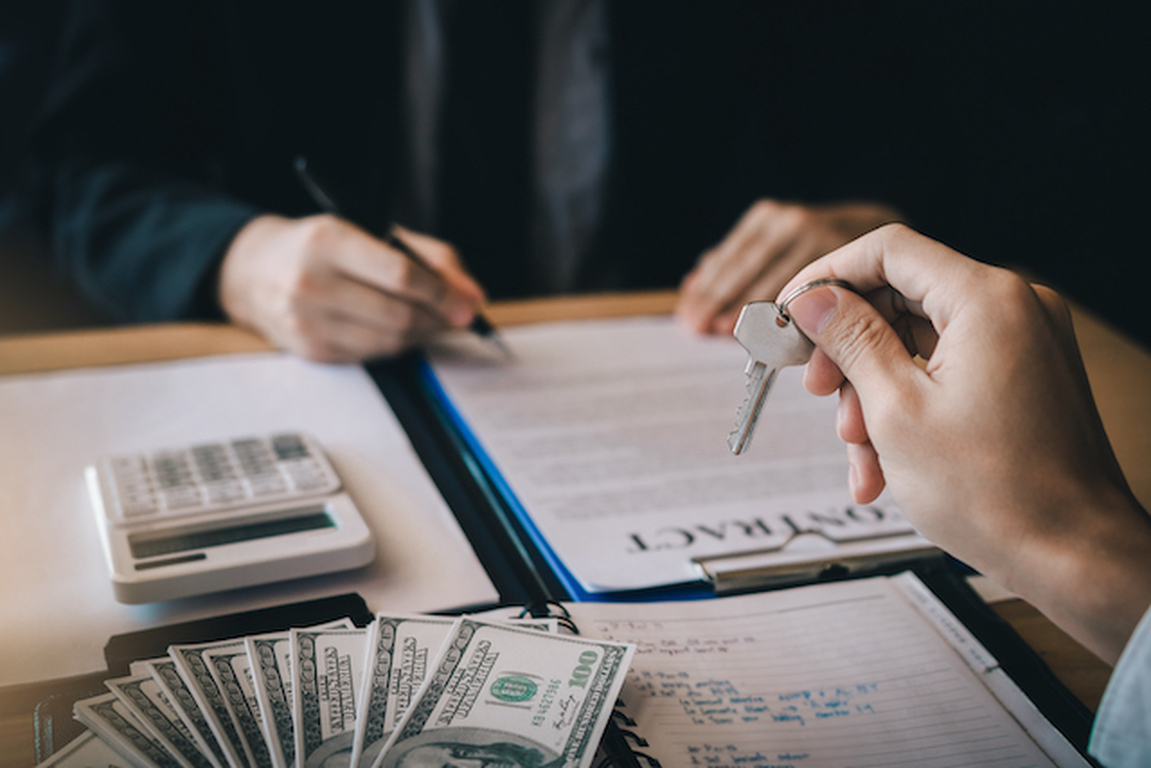Should You Make a Higher Down Payment on a House?
Should You Make a Higher Down Payment on a House?
It is common for homebuyers to purchase homes with minimum down payment loans. Five, three, and zero percent down have become popular, especially with first-time homebuyers. But for those interested in achieving financial independence, you might want to rethink minimum down payment loans. This is even more important than the question of taking a 15 or 30 year mortgage.
By making a 20 percent down payment on a house, you open up all kinds of financial benefits that will help you in buying a home, and keep your payment to a minimum when you do.
Property values can fall as well as rise. As a result, millions of people are stuck in homes that they either couldn’t afford to keep (due to a job loss that may come with a recession), but could not sell because the value of the property fell below the outstanding mortgage balance. This situation is often made worse by a minimum down payment. By making a 20 percent down payment, you maximize both the likelihood and severity of a price decline to put you into a negative equity situation.
When you make a down payment of less than 20 percent for a conventional loan, the mortgage lender will require that private mortgage insurance be added to your monthly payment. By delaying your purchase until you have enough money to make a 20 percent down payment, you eliminate the need for mortgage insurance and keep your payment to a minimum.
A larger down payment will mean a smaller mortgage amount, and the smaller your mortgage amount, the lower your monthly payment will be. When you put down only five percent, you’ll be taking a much larger mortgage, and that means mortgage insurance will be required.
Another factor is that you will get a better rate and better terms as a result of making a 20 percent down payment. A smaller down payment will require that the rate you get will increase, and the loan terms may be a bit stiffer.
Making a 20 percent down payment on a home is a sign of borrower strength. The fact that you can make a larger down payment is an indication that you have an ability to save money, which is one of the best indicators of borrower credit-worthiness. You have a greater likelihood of being approved for a mortgage.
Ultimately, it should be the goal of every homeowners to pay off the mortgage on their home as early as possible. It’s one of the best preparations for retirement. A mortgage-free home results in a significant drop in monthly expenses. Because the monthly payment is smaller with a larger down payment, you will be able to make a far greater amount of extra principal payments.
It is common for homebuyers to purchase homes with minimum down payment loans. Five, three, and zero percent down have become popular, especially with first-time homebuyers. But for those interested in achieving financial independence, you might want to rethink minimum down payment loans. This is even more important than the question of taking a 15 or 30 year mortgage.
By making a 20 percent down payment on a house, you open up all kinds of financial benefits that will help you in buying a home, and keep your payment to a minimum when you do.
Property values can fall as well as rise. As a result, millions of people are stuck in homes that they either couldn’t afford to keep (due to a job loss that may come with a recession), but could not sell because the value of the property fell below the outstanding mortgage balance. This situation is often made worse by a minimum down payment. By making a 20 percent down payment, you maximize both the likelihood and severity of a price decline to put you into a negative equity situation.
When you make a down payment of less than 20 percent for a conventional loan, the mortgage lender will require that private mortgage insurance be added to your monthly payment. By delaying your purchase until you have enough money to make a 20 percent down payment, you eliminate the need for mortgage insurance and keep your payment to a minimum.
A larger down payment will mean a smaller mortgage amount, and the smaller your mortgage amount, the lower your monthly payment will be. When you put down only five percent, you’ll be taking a much larger mortgage, and that means mortgage insurance will be required.
Another factor is that you will get a better rate and better terms as a result of making a 20 percent down payment. A smaller down payment will require that the rate you get will increase, and the loan terms may be a bit stiffer.
Making a 20 percent down payment on a home is a sign of borrower strength. The fact that you can make a larger down payment is an indication that you have an ability to save money, which is one of the best indicators of borrower credit-worthiness. You have a greater likelihood of being approved for a mortgage.
Ultimately, it should be the goal of every homeowners to pay off the mortgage on their home as early as possible. It’s one of the best preparations for retirement. A mortgage-free home results in a significant drop in monthly expenses. Because the monthly payment is smaller with a larger down payment, you will be able to make a far greater amount of extra principal payments.


 Menu
Menu




